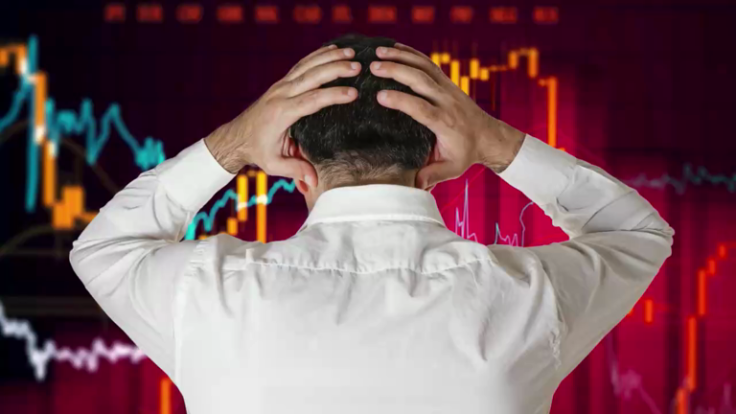Is there something 'Fishy' about economics?
The sphere of economics has learnt to its cost that unorthodox thinking is not some inconvenient balderdash.

The Bank of England's (BoE) chief economist Andy Haldane recently provided a juicy soundbite and a baseball bat to (once more) beat the economics profession, by comparing recent economic forecasts to the outrageously inaccurate forecast by the BBC weatherman Michael Fish, ahead of the UK's great storm of 1987.
For some, Haldane's comment was an allusion to the so far errant BoE Brexit forecasts. However, it was (clearly) aimed at the failure to foresee/predict/forecast – delete as appropriate – the global financial crisis (2008-09). The, not insignificant, issue with the BoE's (and many others') Brexit outlook assumed households would increase savings, thus cut spending.
The opposite happened alongside cranked up borrowing to support spending. A point also missed in the cacophony of economics bashing following Haldane's "fessing up", is the Bank hasn't really changed its outlook. Several intrinsic issues with economic modelling are highlighted.
The "assumption" that the "rational" response to Brexit would be a reaction similar to that of financial crisis (households save more/cut spending) was wrong (so far at least). Does this mean British consumers acted "irrationally"? No. Does it mean economics' definition of rational is wrong? In some cases, a definitive yes.
As a Cambridge University paper points out, leaving the European Union is a unique event – by definition without precedence. Using history as a guide for assumptions is fraught with error potential. Users of economic analysis should be aware of this health warning and interpret as such. This is not the same as saying forecasting should stop.
Yet, this is not to let economics off the hook. When introduced to macroeconomic modelling, parsimony looms large. This means keeping models as small as possible to focus on major influences. The main determinants of this are theory and statistics. The latter oft uses the normal distribution to get rid of so-called "insignificant" variables.
The financial crisis indicated the assumption a great deal of economic data can be treated as normally distributed to be suspicious at best. Wrong at worst. Does ridding a model of statistically insignificant variables improve its reality in a complex economy?
And, this assumes models/explanatory variables/theory are right in the first place. A major blunder in the lead-up to the financial crisis was the mainstream treatment of the banking sector. The majority of models ignored it and this without the added complexity of financial markets (currently being corrected).
This is particularly puzzling given credit's economic role and banks as the main provider of loans. The problem here stems in part at least from the failure of central banks to target money supply growth in the 1970s and early 80s. Out went money supply as a "useful" indicator (pick-up an A-level textbook for the room afforded to money supply). Unfortunately, it seems monitoring credit cycles (data embedded in money supply stats) went the same way.
Prior to the financial crisis, credit data was available. It must have been. How else did those economists pointing out credit growth/debt levels approaching unsustainable levels arrive at such conclusions? However, these economists' views were dismissed, the data ignored, and banished to the fringes of economics under "Heterodox". This is an education problem.
As the subject has learnt to its cost, heterodox is not some inconvenient balderdash. At the very least it should be used as a critical check-point to orthodoxy, better still, encouraged to challenge traditional views. Economics does after all make a claim to be a robust subject.
I once read a book called The Trouble with Physics by Lee Smolin. My interpretation is of a story where vested interests hold the keys to the subject's research financing (i.e. handing out the grants) detrimentally leads to focus on too narrow a topic area(s). Economics (not the only subject) suffers from a similar mind set. Haldane is right to highlight fishy economics, but soundbites do not actually help deal with the deeper problem.
Marcus Dewsnap is a senior analyst at Informa Global Markets (IGM), which he joined in 2010. He primarily spends his time looking at the global macroeconomic landscape, monetary policy and the impact on global fixed income and foreign exchange markets, with a good dose of commodity markets thrown in. Prior to IGM, Marcus spent 10 years producing live business and financial TV programmes at CNBC and Bloomberg, during which time he also attained a masters degree with distinction in economics.
© Copyright IBTimes 2025. All rights reserved.






















